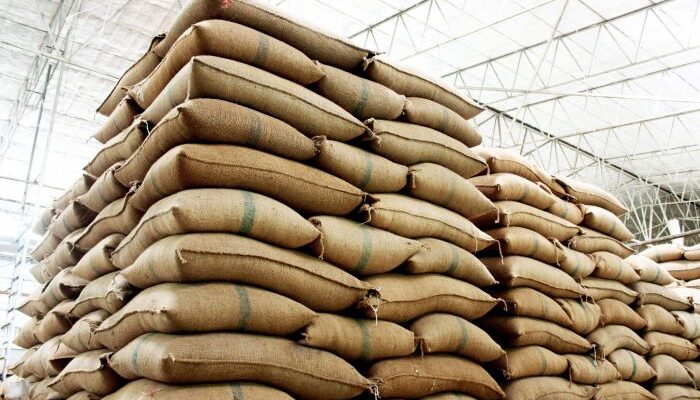Union Budget 2023-24 aims to make the agriculture sector future-ready with respect to technology, rising input costs and tackling the adverse impacts of climate change. The overall focus of the budget is not only to earmark funds for various schemes and segments but to also undertake structural reforms which will make the sector more efficient and competitive in the long run.
The experts and agri industry captains dubbed the Budget 2023 progressive for the sector. They pointed out that along with other segments critical post-harvest management and food processing have got a boost with the budgetary provisions. According to experts and industry veterans, Agriculture Accelerator Fund, Digital Public Infrastructure, higher credit flow, computerisation of PACS, and thrust to the green economy- where agriculture and allied sectors will also play an important role- are the key announcements which have huge potential to transform the Indian agriculture sector.
You may also like to read – How does the agri input industry see the Union Budget 2023-24?

Sandeep Sabharwal, Group Chief Executive Officer, Sohan Lal Commodity Management said, “Increase in agricultural credit target to INR 20 lakh crore is a welcome step for the farm sector. The proposal to decentralise storage will go a long way in controlling the post-harvest losses and also it will be an enabler as well as a catalyst for increasing farmers’ returns especially when it is coupled with the 10,000 farmer producer organisations (FPOs) programme, Operation Greens and eNWR (electronic-Negotiable Warehouse Receipts). This step is aligned with the goal of doubling farmers’ income.
However, Sabharwal added, “While the exclusion of GST on the lease rentals that go as input to agri warehousing services was much expected in this budget as it becomes a cost to service providers which rather gets passed on to the customers. We have been advocating for this for a long time, and we hope that the Finance Ministry will consider this proposal subsequently.”
You may also like to read – Budget 2023: Restructured PACS to transform farmers’ income and life

Ritwik Bahuguna, Partner, Wazir Advisors said, “The proposed Agriculture Accelerator Fund would surely encourage agri startups to innovate further, scale up their operations and make their offerings to farmers better targeted and more affordable. This should eventually ensure profitability for many of the existing startups which are in the red. Building a Digital Public Infrastructure for agriculture as open source, open standard and interoperable, would result in offering inclusive farmer-centric solutions and also help improve access to farm inputs, and market intel among others. Next, the focus on promoting millet will ensure better price realisation by farmers and enhance food security.”

India has huge potential and agriculture is going to make India a superpower and a multi-million trillion-dollar economy. This can happen only through agriculture. “The launch of a new sub-scheme under PM Matsya Sampada Yojana is a welcome move. It is also encouraging to see the focus is given to millet crops, agri-credit, small farmers and envisages India becoming a global hub for millets. The plan to set up 10,000 bio input resource centres along with assistance to one crore farmers to adopt natural farming methods over the next 3 years is definitely the right step towards the farmer community,” said, Ruchit Garg, Founder & CEO, Harvesting India.

There are several misses also. While welcoming Agri Accelerator Fund for horticulture as well as continued thrust on millets, Atul Chaturvedi, Executive Chairman, Shree Renuka Sugars said, “No announcement of a roadmap for National Oilseed Mission is a bit of a dampener for the vegetable oil sector as our edible oil security continues to be heavily compromised. For the sugar and edible oil sectors, this budget is a non-event as the Finance Minister has not tinkered with duties. The edible oil refining industry was demanding restrictions on refined palmolien imports in line with the Prime Minister’s clarion call of ‘Make in India.’ Nothing has been announced on that front. The cooperative sugar sector would heave a sigh of relief as the long-standing tax demand of close to Rs 10,000 crore has now been practically withdrawn.”
You may also like to read – Budget 2023: Accelerating agritech to create a robust ecosystem

Sanjay Gupta, MD & CEO, National Commodities Management Services (NCML) said, “The decision to computerise 63,000 primary agricultural credit societies (PACS) with an investment of Rs 2,516 crore will enable inclusive farmer-centric solutions and help improve access to farm inputs and farm credit.”
In her budget speech, Finance Minister Nirmala Sitharaman said, “India is the global hub for millets. India is at the forefront of popularising millets whose consumption furthers nutrition, food security and welfare of farmers.”

Meghana Narayan, Co-founder, Wholsum Foods, maker of millet-based children’s food brand Slurrp Farm, said, “ The government’s intent is to drive measures which can increase the popularity of millets in both domestic and global markets. The announcement of making the ICAR-Indian Institute of Millets Research, Hyderabad a centre of excellence to foster innovation is commendable and will continue to help brands like us in enabling adoption and achieving India’s millet dreams. We are ready to support the government of India in achieving this vision through innovation in the sector, branding and marketing to make millets acceptable across the world, and promoting the export of millets.”
The Union Budget 2023-24 proposes a continued focus on the key areas of improving farm-gate infrastructure and promoting the use of technology to improve farm incomes.
You may also like to read – Budget 2023: Allocation for Fisheries Dept grows 38.45% over the previous Budget

Ramesh Doraiswami, Managing Director & CEO, National Bulk Handling Corporation (NBHC) said, “The creation of Digital Public Infrastructure for Agriculture is commendable as it will be an open source of information services for crop planning and health, improved access to farm inputs, agri credit, insurance and market intelligence, which today are not available readily to farmers thereby limiting their income. It will be interesting to see the details of this fund since it could also stimulate rural employment. Overall, the Budget 2023 presents a positive outlook for the agriculture sector and is likely to have a positive impact on the growth of agritech companies.”

According to experts, significant agricultural credit support and fund infusion in agri and allied sectors should promote existing farmers and people looking for secondary income streams to set up livestock, poultry, fish, and insect farms which would lead to a growth in non-arable land agriculture.
Ankit Alok Bagaria, Co-founder, Loopworm said, “Rs 6,000 crore infusion to promote fisheries would help shrimp farming the most. Decreasing import duties on feed ingredients is going to help the feed manufacturers and help formalise animal husbandry but would lead to reduced margins for domestic feed ingredient manufacturers. Funds to support bio-based products to promote natural farming should boost the plant bio-stimulant and bio-fertiliser industry.”






Water security has become a deep concern across Australia, as a result of inadequate dams, expanding population, and the effects of global warming, culminating in frequent catastrophic droughts.